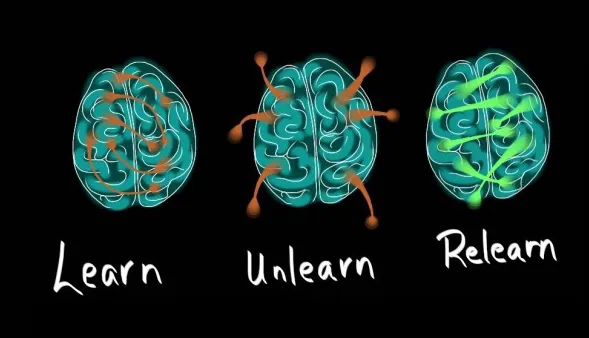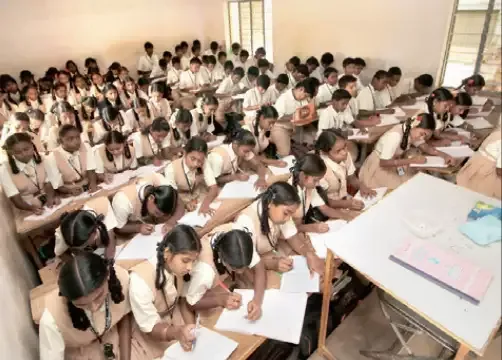
Image source
I love spending time talking to parents after my classes and lately, there was a question that was frequently asked. Most parents wonder which school they should send their children to. Actually, let me clarify that question. The parents wonder what kind of school they should send their children to.
The education may vary depending on which country you are from. However, in general, schools in my country are divided into four types:
- National Government Schools
- Government Vernacular Schools
- Private Schools
- Home Schools
Before I get into what each school is all about, please note that the first two options in my country is free, whereas the third and fourth options require some form of fee. Both the National Government School and a Government Vernacular School follow the national curriculum. The only difference is that Government Vernacular Schools may teach subjects such as Mathematics and Science in the school's chosen language. this will either be in Mandarin or Tamil.

Image source
Private Schools, be it Chinese Independent Schools or International schools will follow their sown curriculum which would commonly be the Unified Exam Certificate (UEC) or International General Certificate of Secondary Education (IGCSE). Home schools can be conducted with whichever curriculum that you so choose.
So if you are wondering which school you should send your child to, let me start with a question:
Will You Send Your Child Abroad?
In general, it boils down to your plan for your child's future. If you are planning to send your child abroad, you may want to consider private schools. In Malaysia, this is divided into Chinese Independent Schools and International Schools. Thus, if you are planning to send your child to countries such as the United Kingdom or Australia, an international is your best bet. However, if you plan to send your child to Taiwan or China, a Chinese Independent School would be more suitable.
The reason being that these schools better prepare your child for the work and study culture of that particular nation. Here's an example, I am a product of a Government Vernacular School. All my life, I have been trained to memorize, work hard and never question. Thus, when I went studying abroad, it was a complete paradigm shift for me. Some may even call it a culture shock. Suddenly, I was told that memorizing was bad and I had to question everything in university. I did not do badly in my studies, but I had to re-learn many of the learning methods in university.

Image source
However, if you are planning to enroll your child in a local university, a national government school or a government vernacular school is sufficient. Choosing between a national government school or a government vernacular school is simple. It depends on what second (or third) language you want your child to learn.
Home schools are an option if you find that no schools mentioned above offers the curriculum that you are interested in. A good way to go about this is to check if the curriculum you have chosen fro your child is accepted in most universities locally and abroad.
But... Which Is The Best?
It depends on the following factors:
- Money
- Time
- Exams
So let us start with money. Good schools generally come at a cost, it will cost more because the classroom sizes are smaller and the teachers are likely more experienced (academic qualification is not the only benchmark). In addition, good schools come with good classroom equipment such as smartboards and tablets. This costs money as well. Now, if you find that you have to pay an exorbitant amount but has a classroom size of more than 25 and poor classroom equipment, you may want to consider other schools. Otherwise, you're good to go! The above factors also applies to home schooling centres whereby students will attend and learn based on a particular home-school curriculum.

Image source
In terms of home schools, if you choose to personally home school your child, do take note that it can be very time consuming. It is extremely flexible but do take into account the social component that is lacking in home schools when compared to attending conventional schools. Time should be taken into consideration here. Your child is not a robot and so attending school for six days a week, six hours a day is not very healthy. Do take note of this when reviewing your school's timetable, the amount of time spent in the classroom does not necessarily mean your child learns more.
Exams is also an important element to look at. You can tell a lot from an exam paper. Does it generally have more short answer questions instead of multiple choice questions? Does it require you to justify your answer or just provide the right answer? Short answer questions and justifying your answer requires higher order thinking skills. This is necessary to help your child develop problem solving skills. In addition, exams should be limited in schools as having too many tests does cause the child to perceive learning negatively.
Conclusion
Of course, the most important aspect you should consider when choosing a school is the teacher. It may not be easy to know but a simple chat with the teacher will help you assess how he or she is like quickly. No matter how good the curriculum or how good the infrastructure may be, the quality of a teacher plays an important role in your child's development.
On a final note, this may not be representative of your country's education system, but I hope you find this useful. In addition, I only write this to inform and not to insult nor criticize any particular system. I hope the information provided here will help others make this important decision in their children's life.
